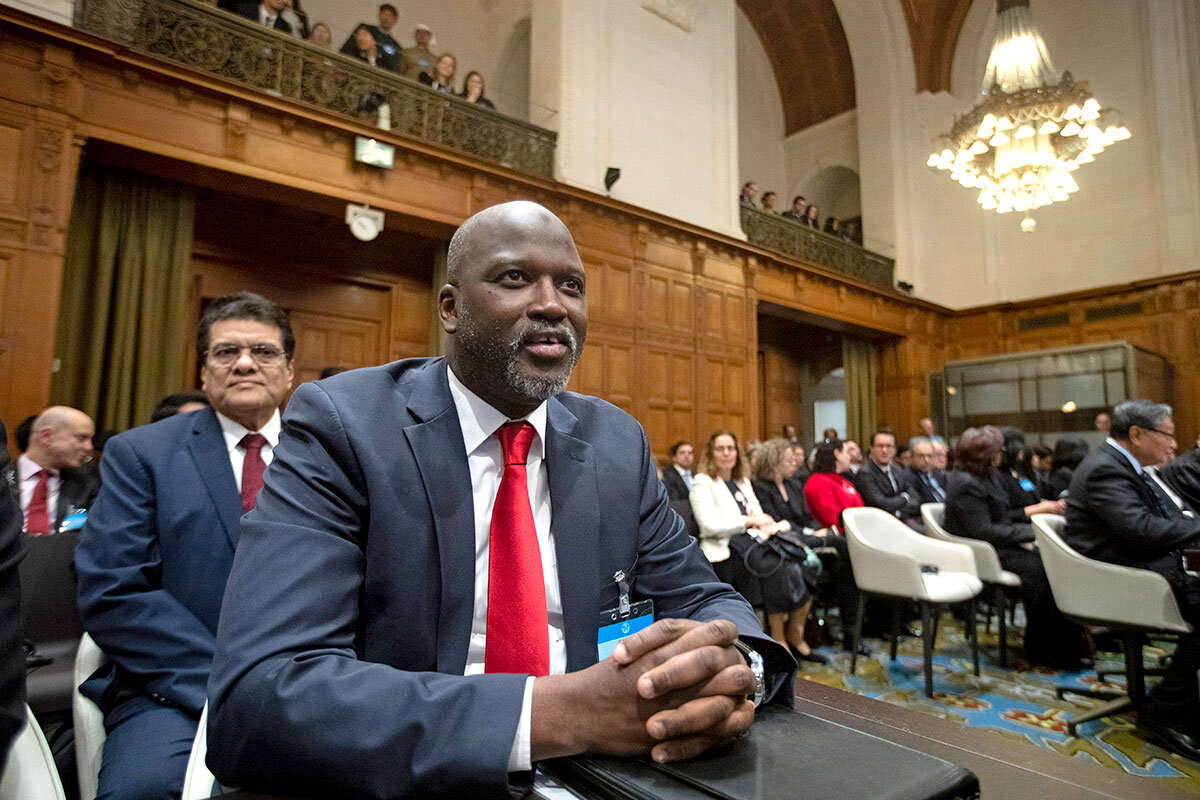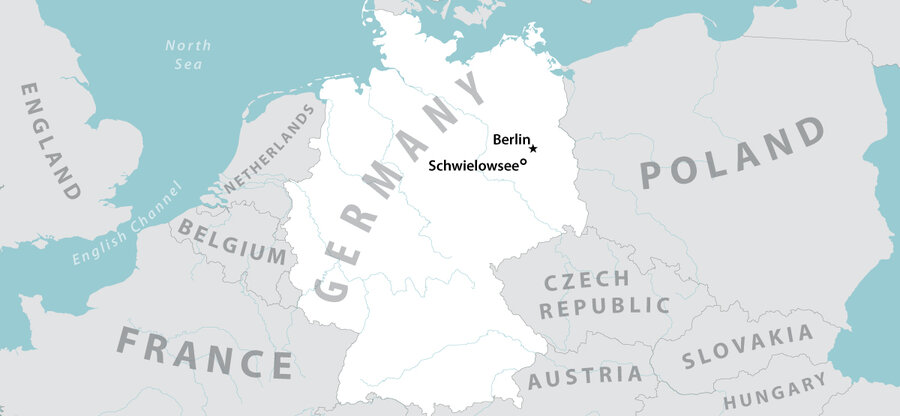Bypassing early states while blanketing airwaves elsewhere, the former New York mayor tries to chart a new path to the presidency – showing how U.S. politics are being changed by digital and targeted messaging, and the power of money.
Monitor Daily Podcast
- Follow us:
- Apple Podcasts
- Spotify
- RSS Feed
- Download
 Yvonne Zipp
Yvonne Zipp
Today, we look at a politician who’s bucking the old rules of politics, the small African country that took a big stand, why Germans are souring on wind farms, the kindness of babies, and a new film of a classic book.
Rarely have the multiplication tables brought this much joy.
At Lucky Candy, a bodega in the Bronx, cashier Ahmed Alwan will ask the person checking out a math question. (What’s 10 times 10 minus 50?) If they answer correctly, they have five seconds to grab anything in the store for free. (Except the cat.) Mr. Alwan, a student at Bronx Community College, covers the amount from his own pocket.
His videos on Instagram and TikTok show patrons grabbing bananas, chips – and once the entire nut rack – as Mr. Alwan slowly counts down from five.
So many people in his neighborhood are struggling, he says, and this is his way of helping them save a little money. The math was to make them smile.
How does his boss feel about the freebies?
Saleh Aobad, the owner and Mr. Alwan’s dad, is very proud.
“It’s great to see him do good and help out the community, and most importantly represent Islam,” Mr. Aobad, an immigrant from Yemen, told CNN.
Mr. Alwan, who started working at 14, has long been quietly generous, extending credit to regulars who need food and giving bananas, rolls, and coffee to people he sees sleeping outside.
Since the videos have gone viral, he says, it’s changed the shop’s relationship with the community. He’d like to help more people, so he’s set up a GoFundMe page.
“I have been seeing a lot of happy faces,” he writes. “I hope to inspire others to always be kindhearted.”











